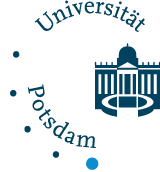Transport and enrichment of W and Sn in melts and fluids at magmatic-hydrothermal stages: experimental approach and application to the Argemela district (Portugal)
The formation of Sn and W deposits in evolved granites is still under debate because of the complexity and interplay of several processes during the magmatic-hydrothermal evolution of these systems. In this project, we propose to contribute to the understanding of these processes by the investigation of a highly evolved peraluminous, high phosphorus, lithium-rich granite system in the Argemela mineralized district (AMD), Portugal. The AMD is an ideal case study to follow the evolution of Sn and W concentrations in fluids in a magmatic-hydrothermal system without significant participation of external fluids (“orthomagmatic” genetic model). Our approach is based on the geochemical investigations of natural rocks, minerals and fluid inclusions which are complemented by an experimental work to reveal details of the metal enrichment and deposition process. The concentrations of Sn and W will be determined in fluid inclusions in quartz minerals that formed at different stages of the magmatic-hydrothermal evolution. The trace elements concentrations in quartz and associated minerals (e.g. micas) will be used to characterize the different stages. Experiments at high pressure and temperature relevant to the AMD will be conducted to constrain (1) the partitioning of Sn and W between fluid and silicate melt and (2) the solubility of cassiterite and wolframite in Li- and P-rich silicate melts and aqueous fluids. Particular attention will be given to the role of Li and P, which is unexplored, and also to the effect of changing temperature, which is expected to play a major role for W. The complementary geochemical and experimental approach will be used to estimate the enrichment of Sn and W at the different evolution stages of the magmatic-hydrothermal system and to constrain how much Sn and W is scavenged in mineral phases at the various stages.
